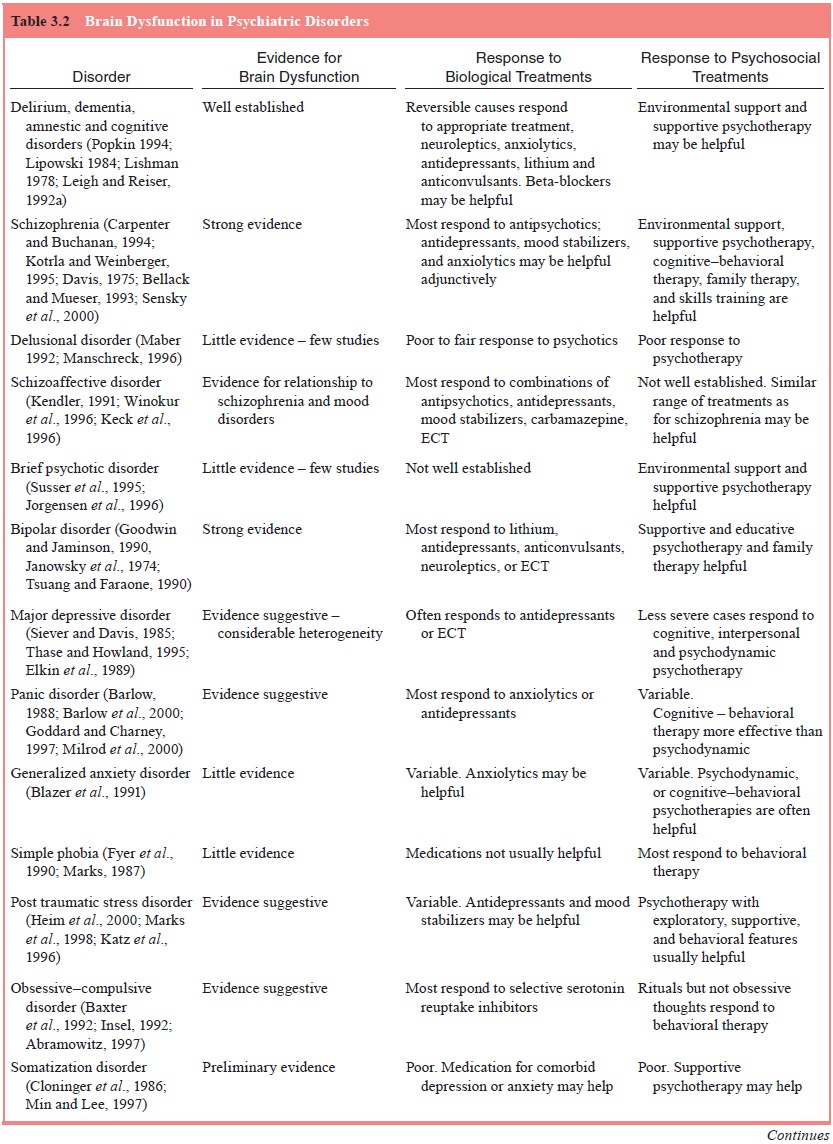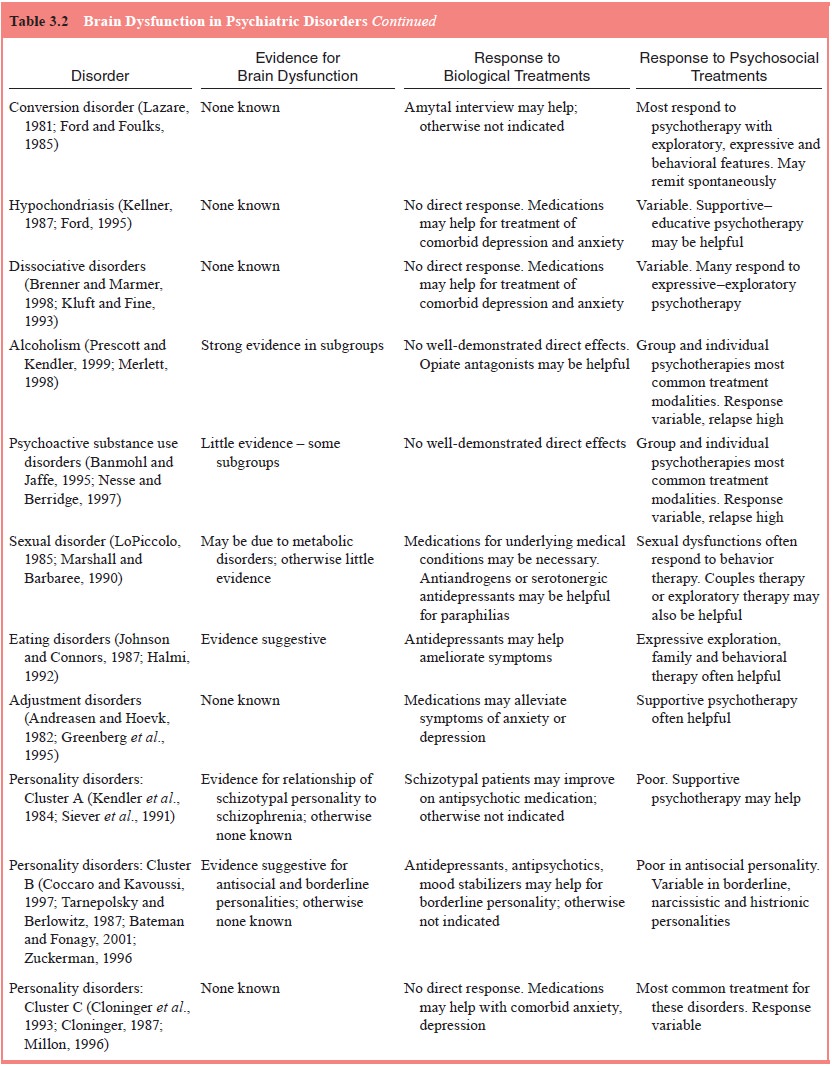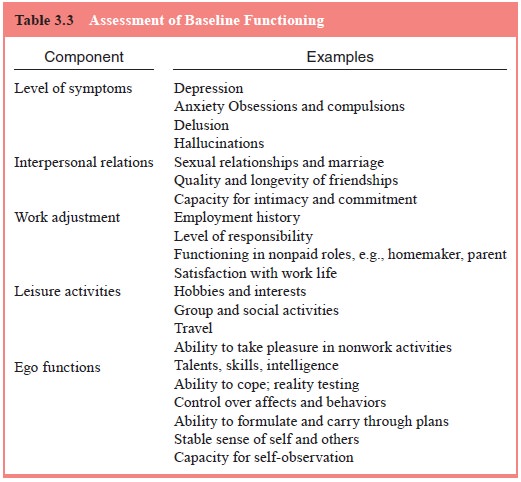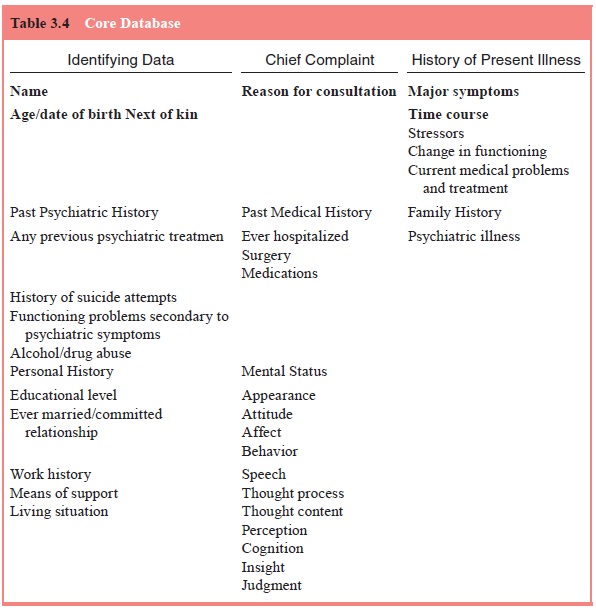Chapter: Essentials of Psychiatry: The Psychiatric Interview: Settings and Techniques
The Psychiatric Database
The Psychiatric Database
The body of information to be gathered from the
interview may be termed the psychiatric database (Tables 3.2 to 3.4). It is a
vari-able set of data: either very specific or general, mainly limited to the
present state or focused on early life, dominated by neuro-logical questions or
inquiry into relationships. To avoid setting the impossible task of learning
everything about every patient, one must consider certain factors which modify
the required database.




Whose questions are to be answered – the patient’s
con-cern about himself, a family or friend’s concern about him, another
physician’s diagnostic dilemma, a civil authority’s need to safeguard the
public, or a research protocol require-ment? Who will have access to the data
gathered and under what circumstances? What is the setting of the interview?
Pri-orities in an emergency room differ from those in an office setting (Meyers
and Stein, 2000). Is the interview to be the
first session of a psychotherapy regimen, or is it
a one time only evaluation? What is the nature of the pathology? For ex-ample,
negative responses regarding the presence of major psychotic symptoms, coupled
with a history of good occupa-tional function, will generally preclude a
detailed inventory of psychotic features. A missed orientation or memory
question will require careful cognitive testing. Patients with person-ality
disorder symptoms warrant careful attention to the his-tory of significant
relationships (Nurnberg et al.,
1991), work history and the feelings evoked in the interviewer during the
evaluation process. The database should be expanded in areas of diagnostic
concern to support or rule out particular syn-dromes. The amount and nature of
the data obtained is also, of necessity limited, by the patient’s ability to
communicate and his cooperativeness.
Related Topics